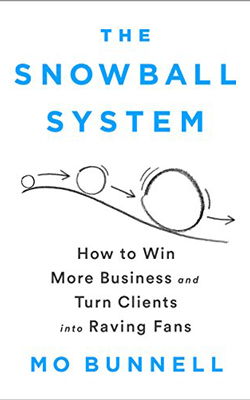Three Steps to Growing Your Influence

If you want to achieve your life goals, you have to grow your influence. Growing your influence is like climbing a ladder. If you're going to climb to the next rung, you have to take your foot off the lowest rung and reach up to the next. Otherwise, you’re never climbing. It’s uncomfortable to climb and grow your influence. It’s scary to let go of your stable footing (hanging out with the people you know) and reach up into the unknown (interacting the people you perceive to be “above” you).
You must have the courage to climb. It means saying yes to foster new relationships and saying no to the status quo. Taking small steps week over week, year over year, pays off. And building a broader and higher level network, oddly helps you help those you’ve known all along. Climbing doesn’t mean you have to say no to old friends, it means you can help them even more.
The key is taking control of your life—and your influence. Here are three ways to do just that.
Step One: Managing Relationships
You know a lot of people, some you know well and some you don't. Most people spend time with those they already know because it's easier. It’s familiar. But if you’re climbing, new relationships have the most impact on your future.
The trick to climb, and this is cool for a Delt, is what we call a Protemoi List. This Greek word on the Hugh Shields flag means "first among equals." That's where I first heard the word, and I love the idea of first among equals.
A Protemoi List, is made of the six to ten people you know instinctively are the most important to impact your future. They’re generally a mix of people you know and people you don’t. They’re not the folks who got you where you are—instead, they’re the people that will get you where you want to go. They’re the most important for your future success.
After you write down your Protemoi List, proactively invest in them on a periodic basis. Send them a Ted Talk. Shoot them a text to ask how they're doing. Invite them to lunch to talk about how you can help each other. It should be a positive, proactive outreach to the people on your list about once a month. This will start to build your relationships with those essential people in ways that wouldn't happen naturally if you don't grab control. And, guess what, it’s fun!
Step Two: Managing Opportunities
Managing opportunities is having a clear list of the things you would like people to say yes to over the coming years. Maybe it’s that promotion you want. Maybe it’s that interview at another organization. Maybe it's that special project that would put your name on the map if you were asked to lead it. Think of opportunities to specific things you need a “yes” to be involved in. These opportunities are usually shorter term in nature than the important relationships on your Protemoi List. An opportunity might make your year, but a great relationship can make your career.
The key to success is reviewing your Opportunity List on a periodic basis and figuring out the next proactive, small, incremental step is you can ask for. This keeps everything moving forward in a way that helps you and helps others. Grab control of your future. If you're looking for a promotion, don't wait until December 31 to ask for it. Work on it two years ahead of time so you get it faster and with more certainty than you ever thought possible. This is the best way to control your future.
Step Three: Managing Yourself
The last piece is managing yourself. The lists above are great starting points, but they don't mean anything if you're not periodically reviewing them and monitoring your progress. Start by choosing a benchmark you can measure—something that's 100 percent in your control. For example, if you have 10 people on you Protemoi List, you might set a benchmark of one outreach per month to every one of those 10. Anything proactive and helpful counts as progress. Or, maybe you want to select three to-dos per week to invest in your Protemoi or other opportunities. Choose a benchmark that works for you.
Whatever you choose, plan time on your calendar to revisit this exact metric. Tally results to see how you’re doing. This must be calendar-driven. Reflect on the past week and a look forward to the next. Ask "What are the most important things I want to do in the next week?" Then rinse and repeat. Hold yourself accountable for those tasks. The last thing to think through is how you celebrate incremental progress. It’s easy to only focus on the big wins, like actually getting the promotion you wanted. Instead, focus on incremental progress. Continuous little wins turn into big results over time.
Reflect on all that did get done and celebrate that. Just asking for a meeting with your boss to discuss your future is incremental progress and a success. If you got your metric done, great! If you got off-track for a week and you didn't do anything, you need to feel a little disappointed in yourself and rally the next week and double your effort. A little celebration or disappointment needs to happen frequently. If you don't, all of a sudden two years go by and you won’t feel like you've been in control of anything. You’ve been reactive. This process is about being proactive: focus, measurement, weekly progress and celebrating. If you do that week after week after week, you'll never be more than a week off track. And when you are on track, you’ll feel great about it. Pretty soon, you’ll be climbing that ladder like a pro.

For more tips to grow your influence and other ways on how to sell yourself without selling your soul with a comprehensive system that will help you win more clients, build stronger relationships, and bring in more business. Go to www.snowballsystem.com to learn more about Mo Bunnell's book The Snowball System and www.createdemandcourse.com for a FREE video course on how to, yes, create more demand for your products and services!
Learn more about The Snowball System
About Mo Bunnell
Mo Bunnell is the founder and CEO of Bunnell Idea Group, a global consulting firm that’s trained business development techniques to over 12,000 professionals at over 350 clients. He has loved being a lifelong Delt. He was very involved at Epsilon Mu at Ball State University, where he was President his senior year. Afterwards, he worked for the fraternity as a chapter consultant.
He’s stayed involved ever since, leading a project for the Arch Chapter on strategy and helping with various components of the chapter consultant training.
Bunnell was a Healthcare Actuarial Consultant at Hewitt Associates. He had just passed all 24 actuarial exams, earning the highest designation as a Fellow of the Society of Actuaries, when he was asked to work alongside a mentor to lead some of the firm’s largest clients. Mo was a technical expert in his field of healthcare consulting. In his new role, however, he needed to be a Seller-Expert. Mo had to continue to deliver highly technical services that demanded a good portion of his time and do business development to grow the business.
He began reading books on relevant topics, digging into peer-reviewed academic research, and inviting high performers to lunch to pick their brains. As the pile of notes grew, he began pulling key themes and topics that, when combined into a process, created a comprehensive business development system.
